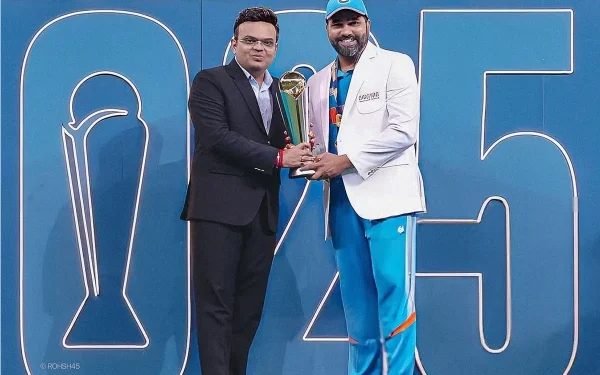In December 2024, Jay Shah, the former Secretary of the Board of Control for Cricket in India (BCCI) and son of India’s Home Minister Amit Shah, was appointed as the Chairman of the ICC. His appointment marked the third time an Indian has held this prestigious position, following N. Srinivasan and Shashank Manohar. Jay Shah’s leadership is seen as a testament to India’s strategic positioning and influence in international cricket.
Sourav Ganguly’s Reappointment as Cricket Committee Chairman
Sourav Ganguly, a former Indian cricket captain and ex-BCCI President, was reappointed as the Chairman of the ICC Cricket Committee. He succeeded Anil Kumble in 2021 after Kumble completed his maximum tenure of three three-year terms. Ganguly’s reappointment extends his term until 2027, reflecting the ICC’s confidence in his leadership and vision for the game’s future.
Composition of the ICC Cricket Committee
The ICC Cricket Committee plays a pivotal role in shaping the rules and regulations of international cricket. The current composition includes a blend of former cricketers and administrators:
- Sourav Ganguly – Chairman (India)
- VVS Laxman – Member (India)
- Hamid Hassan – Member (Afghanistan)
- Desmond Haynes – Member (West Indies)
- Temba Bavuma – Member (South Africa)
- Jonathan Trott – Member (England)
VVS Laxman, renowned for his elegant batting and significant contributions to Indian cricket, continues to serve on the committee, bringing valuable insights from his playing and coaching experiences.
Developments in Women’s Cricket
Leadership of the Women’s Cricket Committee
During the ICC’s annual meeting in Harare, Zimbabwe, Catherine Campbell was reappointed as the Chairperson of the Women’s Cricket Committee. Her leadership is instrumental in advancing women’s cricket globally. The committee also welcomed new members Avril Fahey and Folletsi Musiki, who bring diverse experiences and perspectives to the table.
Support for Afghan Women Cricketers
In response to the challenges faced by Afghan women cricketers following the Taliban’s return to power in 2021, the ICC has established a dedicated task force and funding initiative. This program aims to support displaced Afghan female cricketers, many of whom have sought refuge in countries like Australia, Canada, and the UK. The initiative focuses on providing resources and opportunities to help these athletes continue their cricketing careers and personal development.
Implications of India’s Influence in ICC
India’s continued leadership in key ICC positions reflects its strategic efforts to shape the future of international cricket. By holding significant roles, Indian officials can influence decisions that impact the game’s global direction, including tournament structures, rule changes, and development programs. This dominance also highlights the importance of balancing representation within the ICC to ensure diverse perspectives are considered in decision-making processes.
Conclusion
India’s retention of control over the ICC Cricket Committee, alongside its leadership of the ICC Chairmanship, signifies its growing authority in the realm of international cricket. These developments not only underscore India’s commitment to the sport but also its strategic positioning to influence cricket’s global trajectory. As the ICC continues to evolve, the roles played by Indian officials will be pivotal in shaping the future of the game.

























